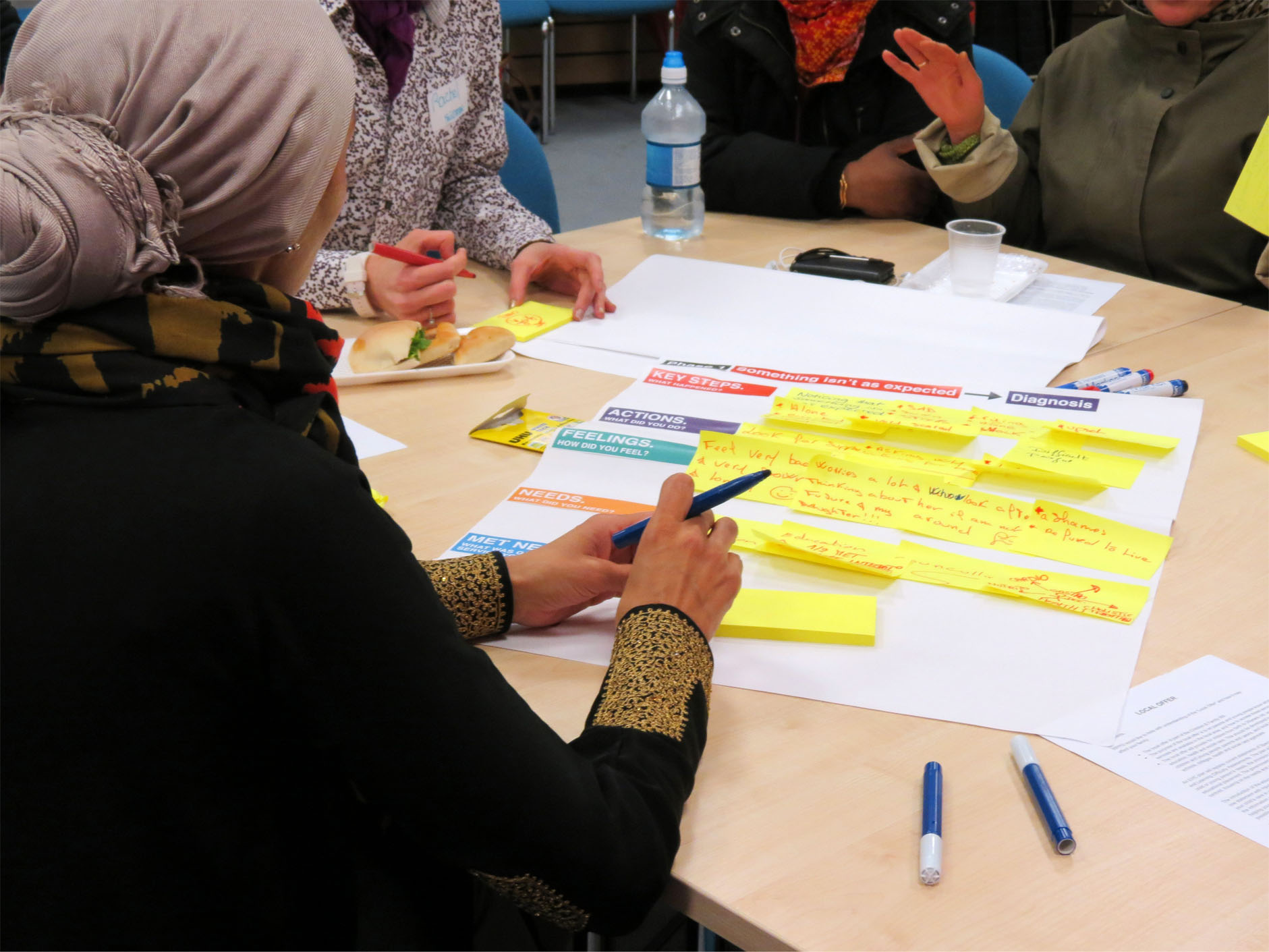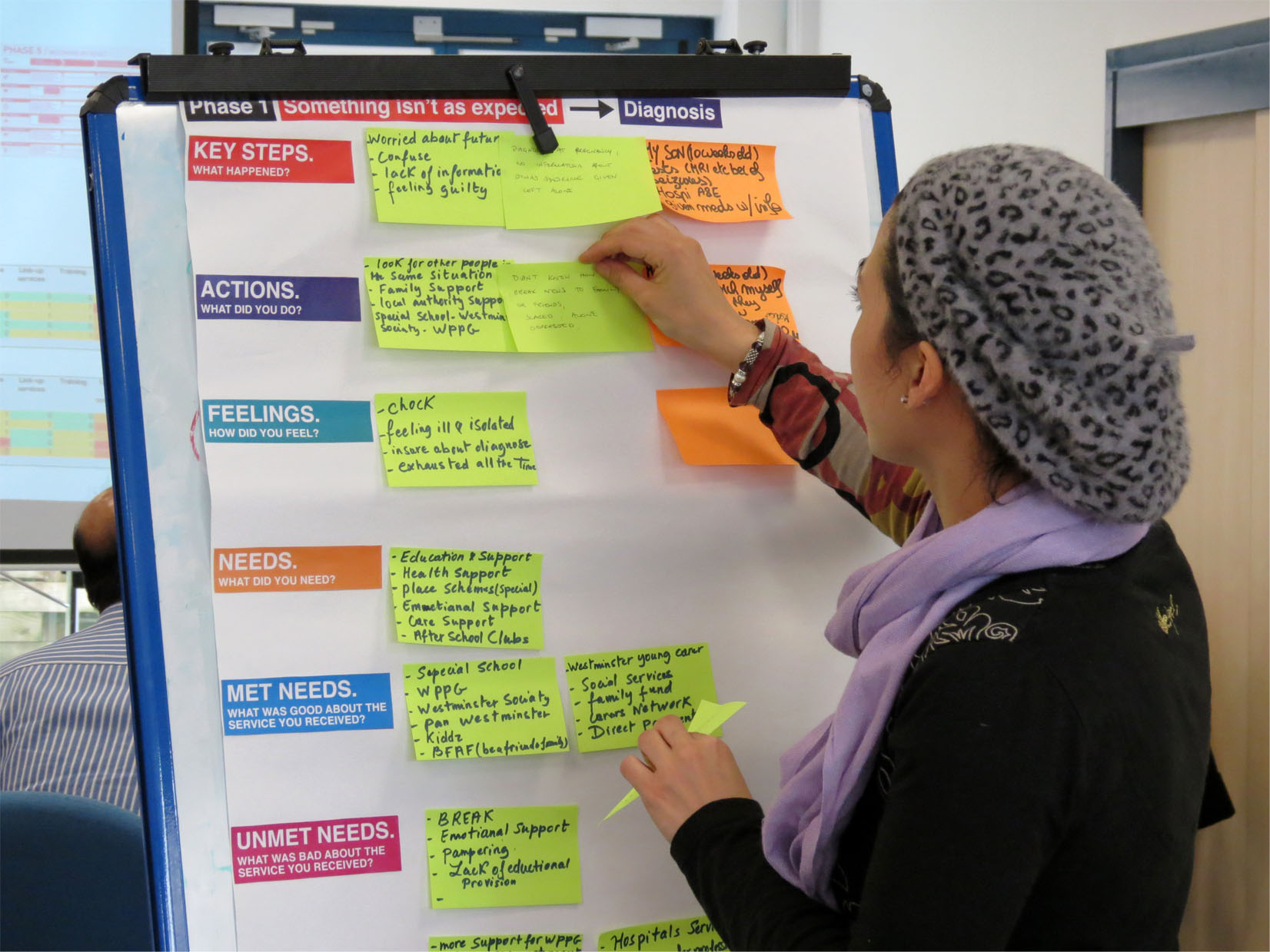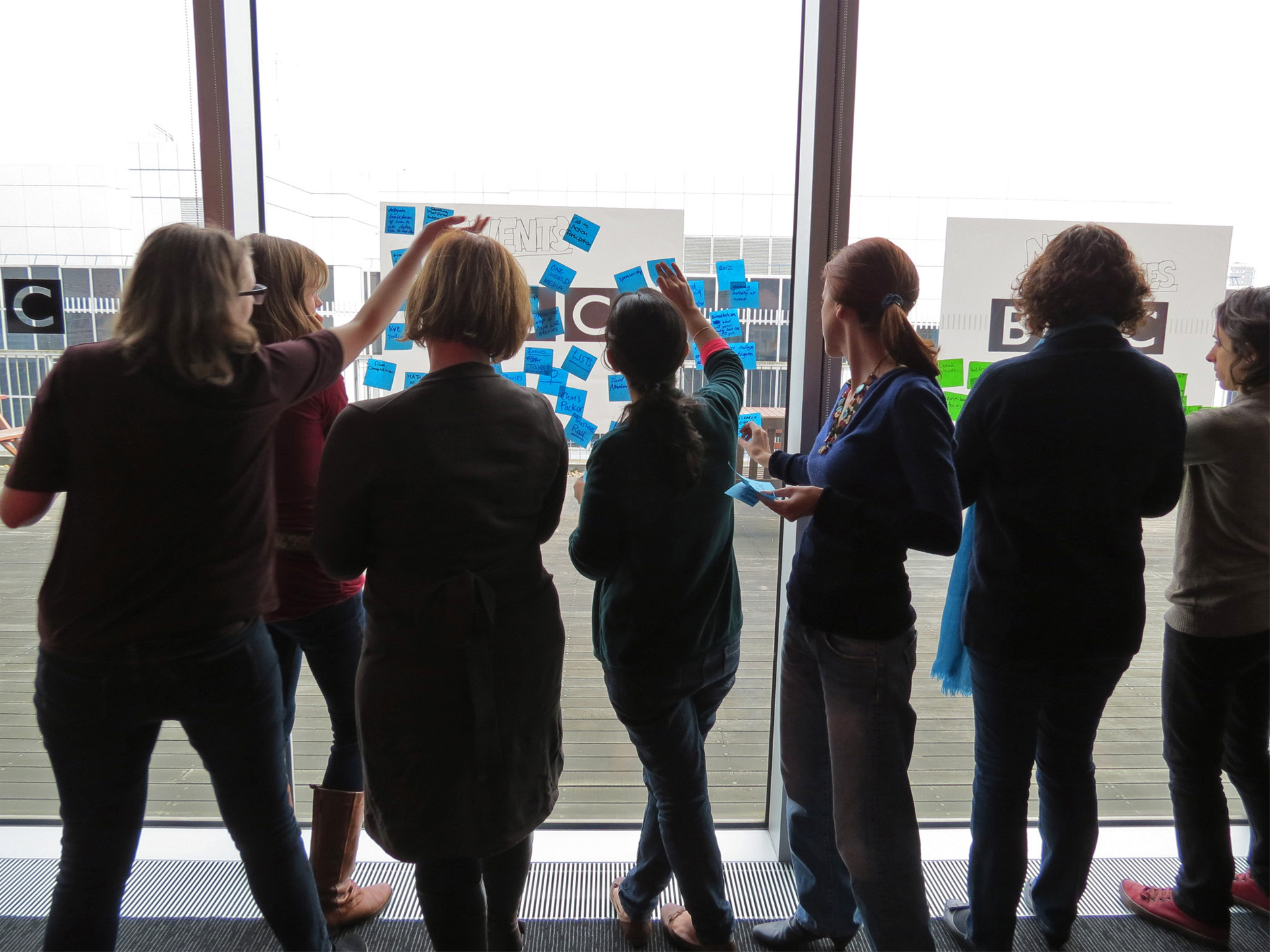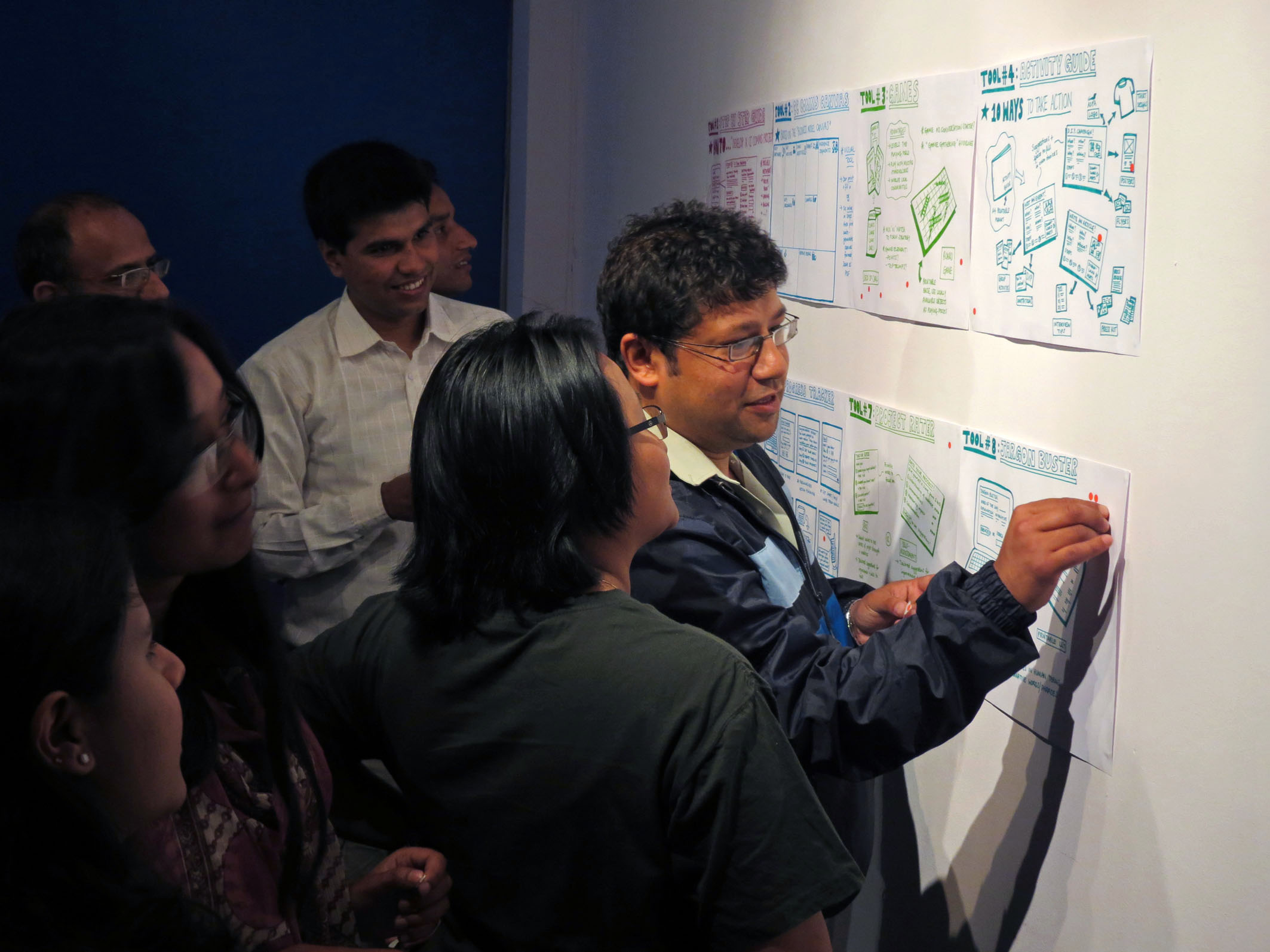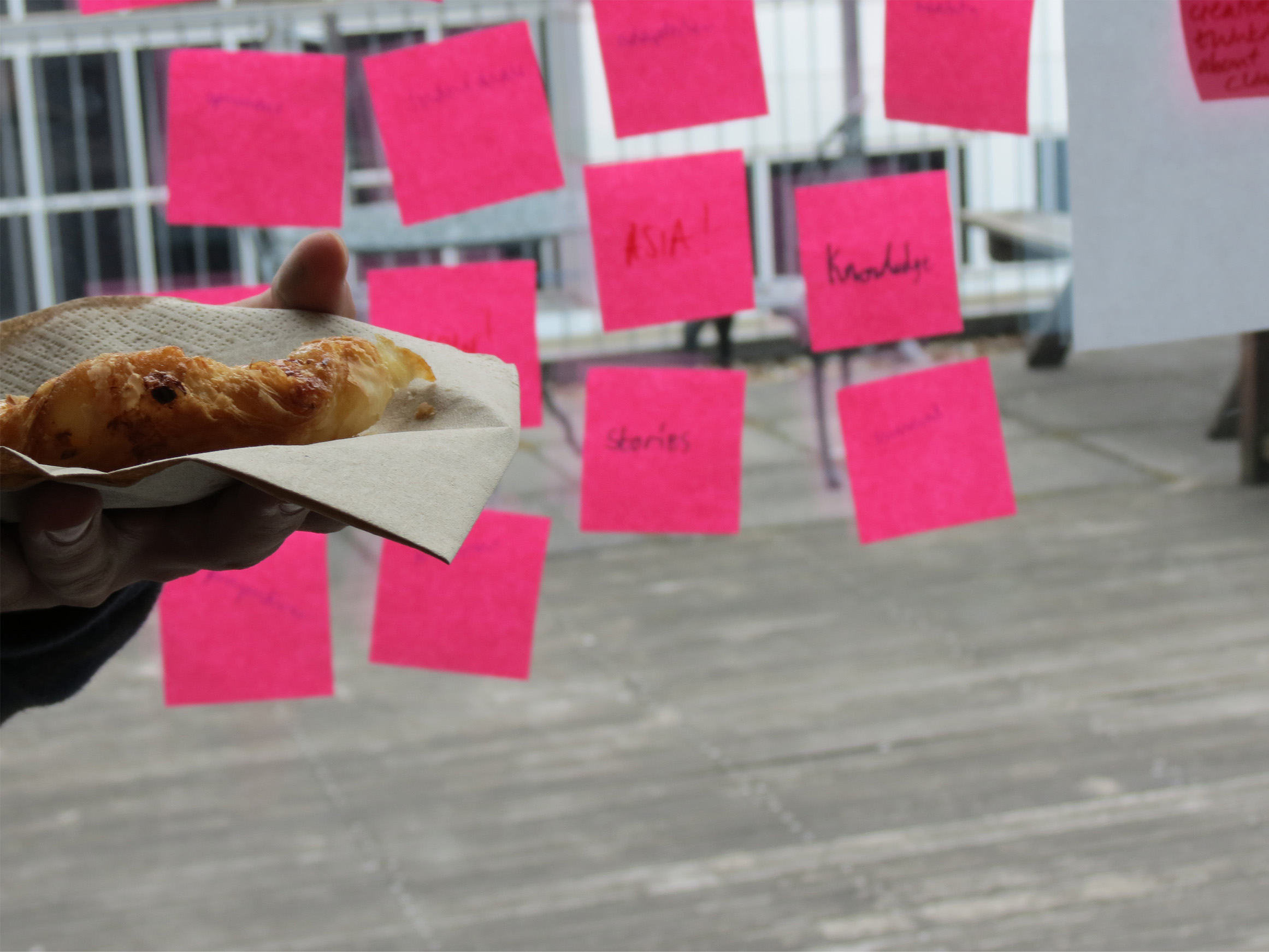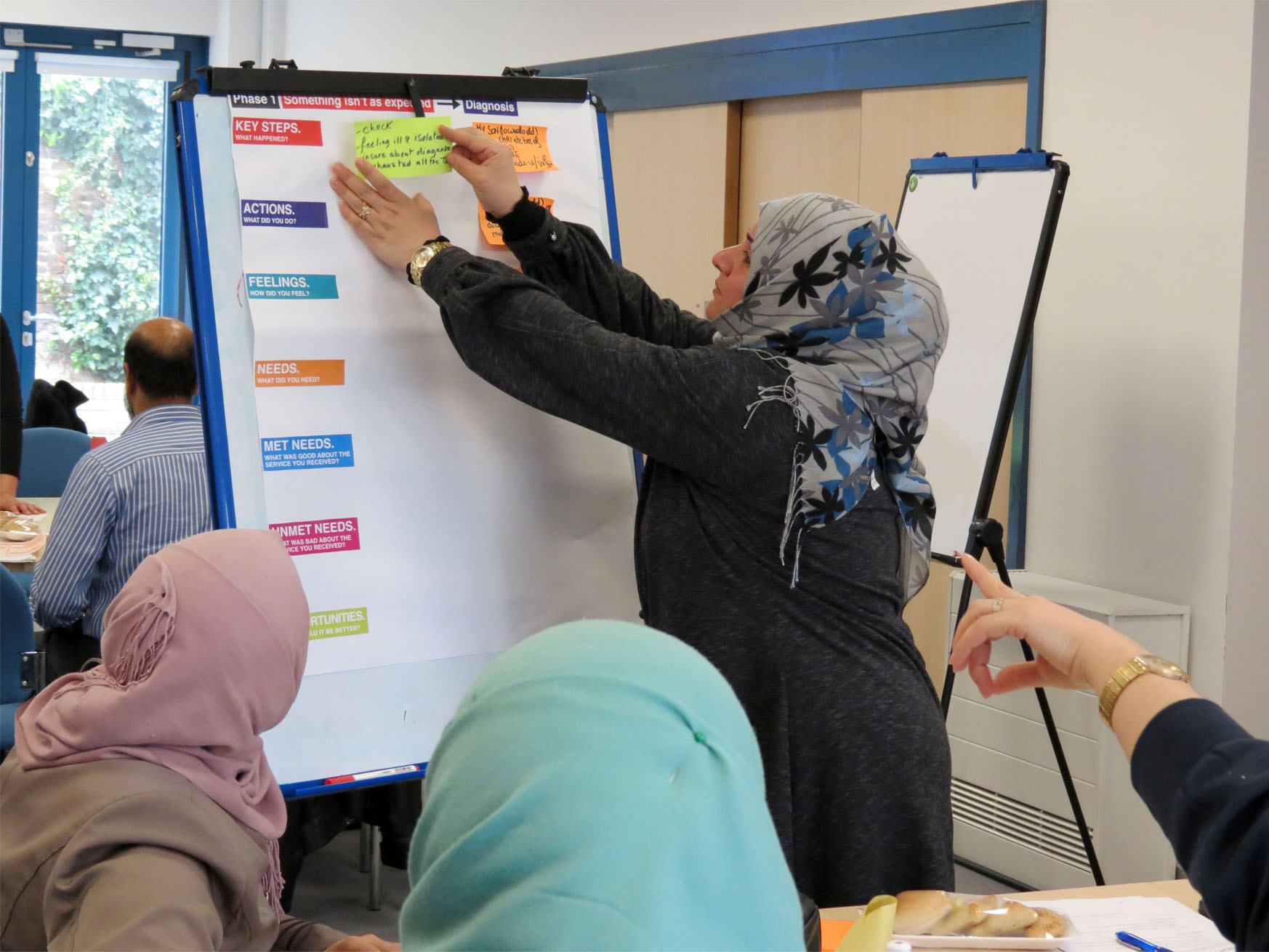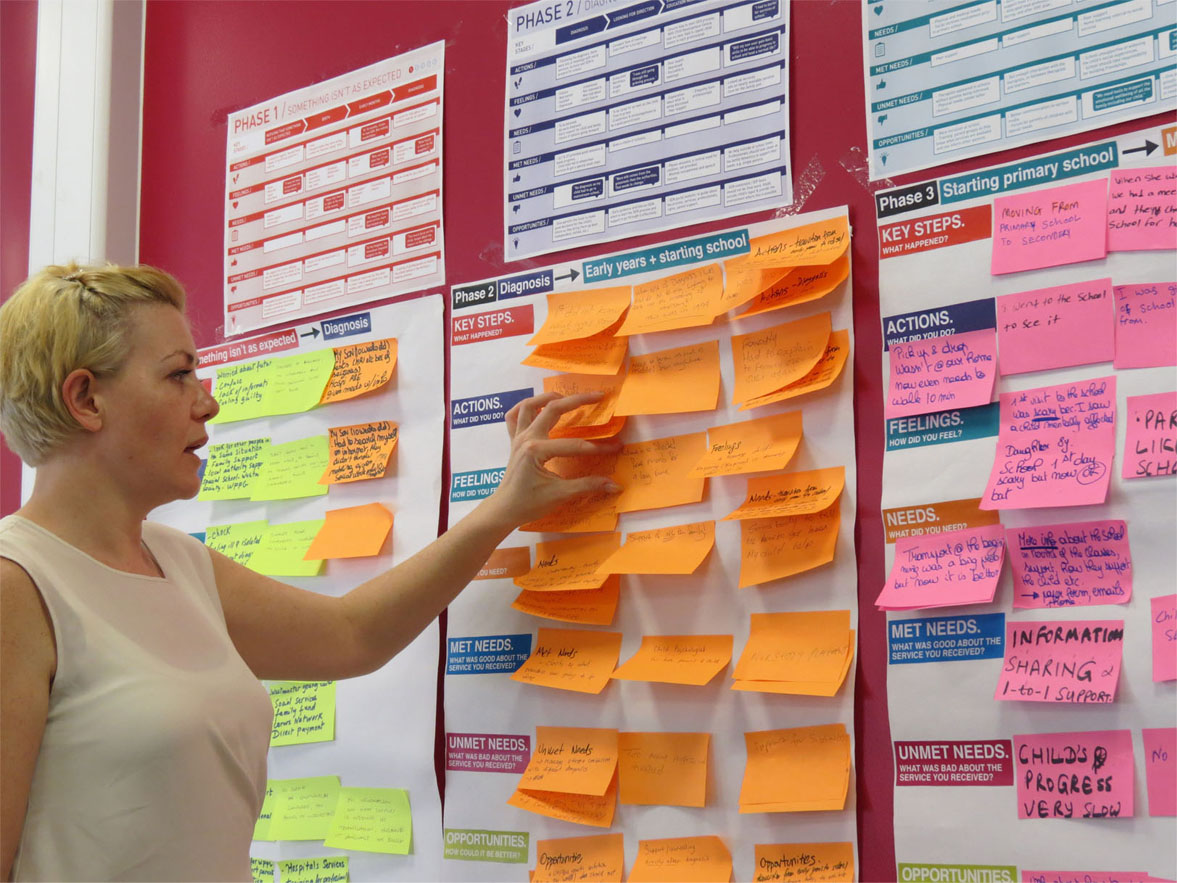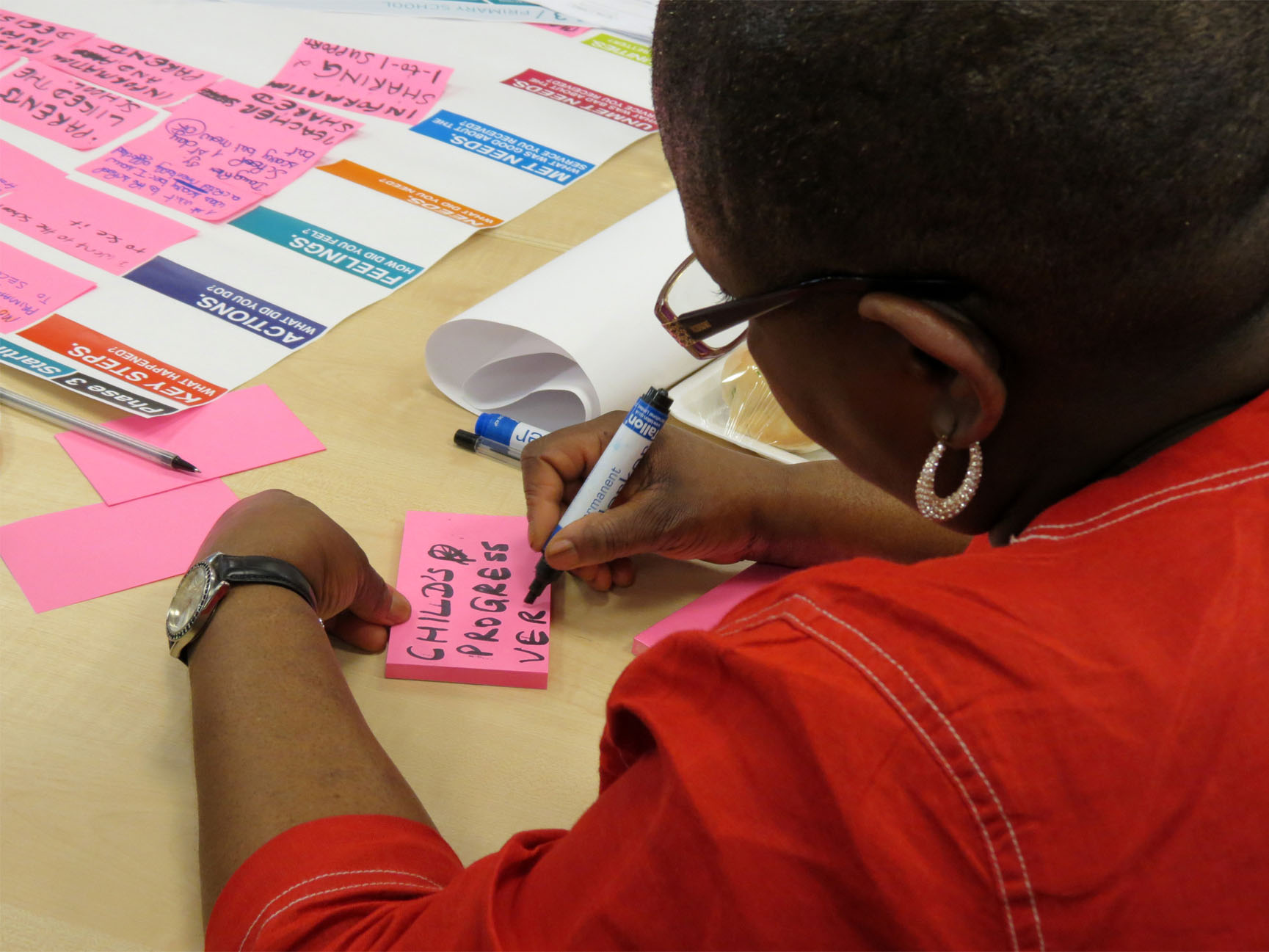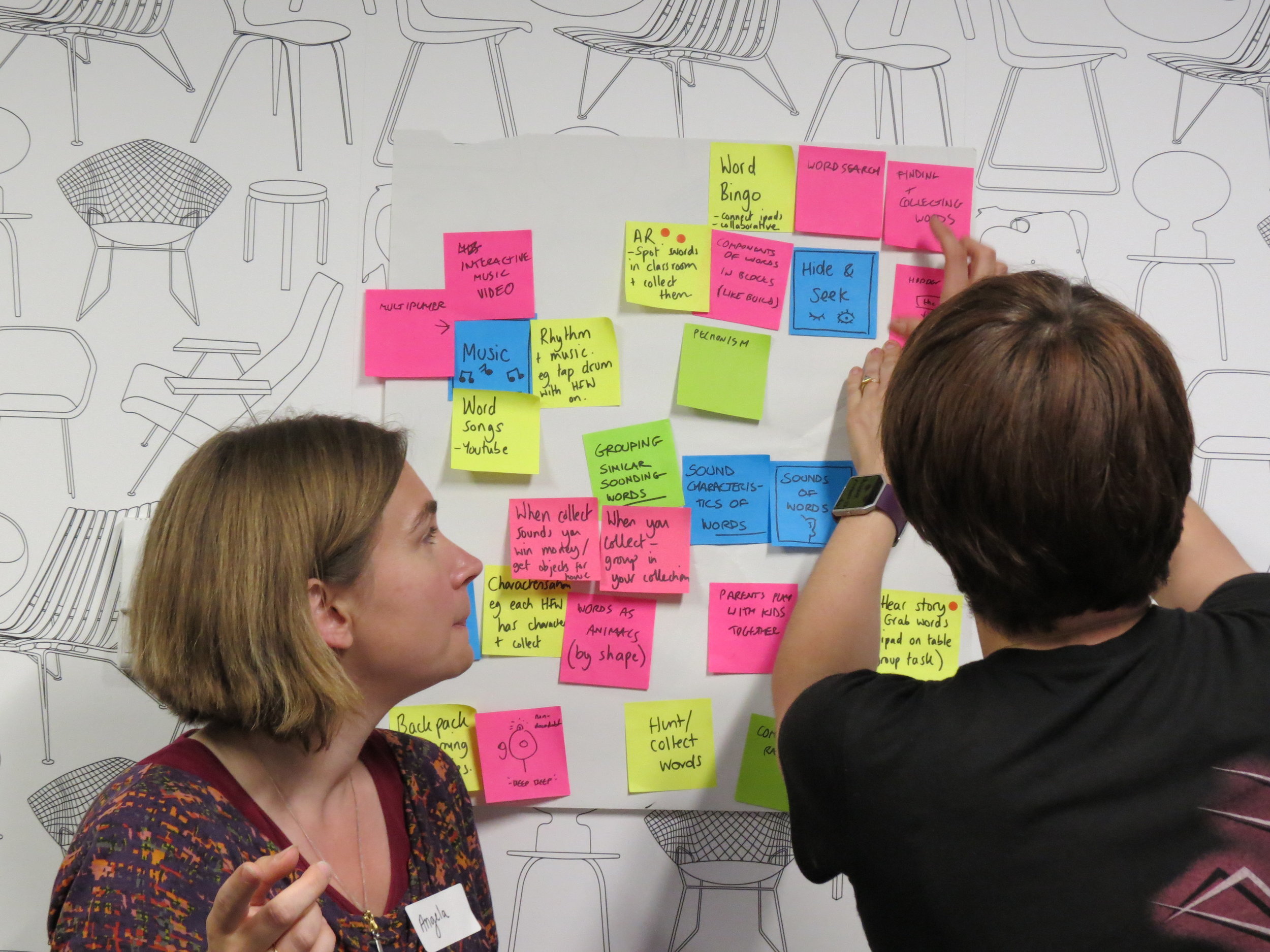Workshops
As well as developing solutions, I offer creative workshops on a standalone basis or as part of larger projects. This is a great way to get a taste of the ‘design approach’, and I run anything from short workshops to multiple sessions over a period of time.
I have experience in designing and facilitating sessions with a diverse range of people; from adolescent girls in rural Ethiopia to media professionals in Nepal. Workshop participants can be the team behind the project, target users / audience members, project partners, or a combination of all three.
“Jenni ran a brilliant all-day workshop for our team. She provided a bespoke and measured introduction to human-centred design, and her combination of professionalism and fun attitude made it an enjoyable day for us. The time that Jenni took before the event to properly understand and test our needs was a significant factor in its success.”
My workshops are highly interactive and include a number of activities designed to unleash the group’s creativity and ‘blue sky thinking’. My goal is to introduce a number of design methods that the group can use again in the future with or without my involvement.
My workshops are:
Visual: ideas are expressed through key words, sketches, mock-ups and role play.
Prolific: the design methods used make it easy to generate 100s of ideas in a short space of time.
Team building: sessions are a great way to build trust and new skills in groups.
Energising: participants go away with an energy boost and are often surprised by their own creativity.
Fun: sessions are designed to be enjoyable and prove that hard work can be fun!
The focus of each workshop depends on the stage of the project and the desired outputs. Some examples of workshop themes include:
// ‘Designing the brief’
– Exploring the problem or opportunity area and the rationale behind the chosen area of focus
– Developing the ‘right’ brief for going forward
// ‘Understanding users’
– Profiling the project’s target users / audiences
– Building empathy through methods such as creating personas and mapping user journeys
– Designing user research activities
// ‘Generating ideas’
– Looking at the project brief and generating 100s of ideas for potential solutions
// ‘Evaluating ideas’
– Looking at all of the ideas generated and evaluating them democratically
– Identifying patterns and clustering ideas by themes
– Prioritising and combining ideas to be developed further
// ‘Prototyping ideas’
– Bringing ideas to life through making and role play
– Rapidly testing ideas to find out what works and what doesn’t work
These themes can be combined into one session or divided over multiple sessions carried out in sequence.


